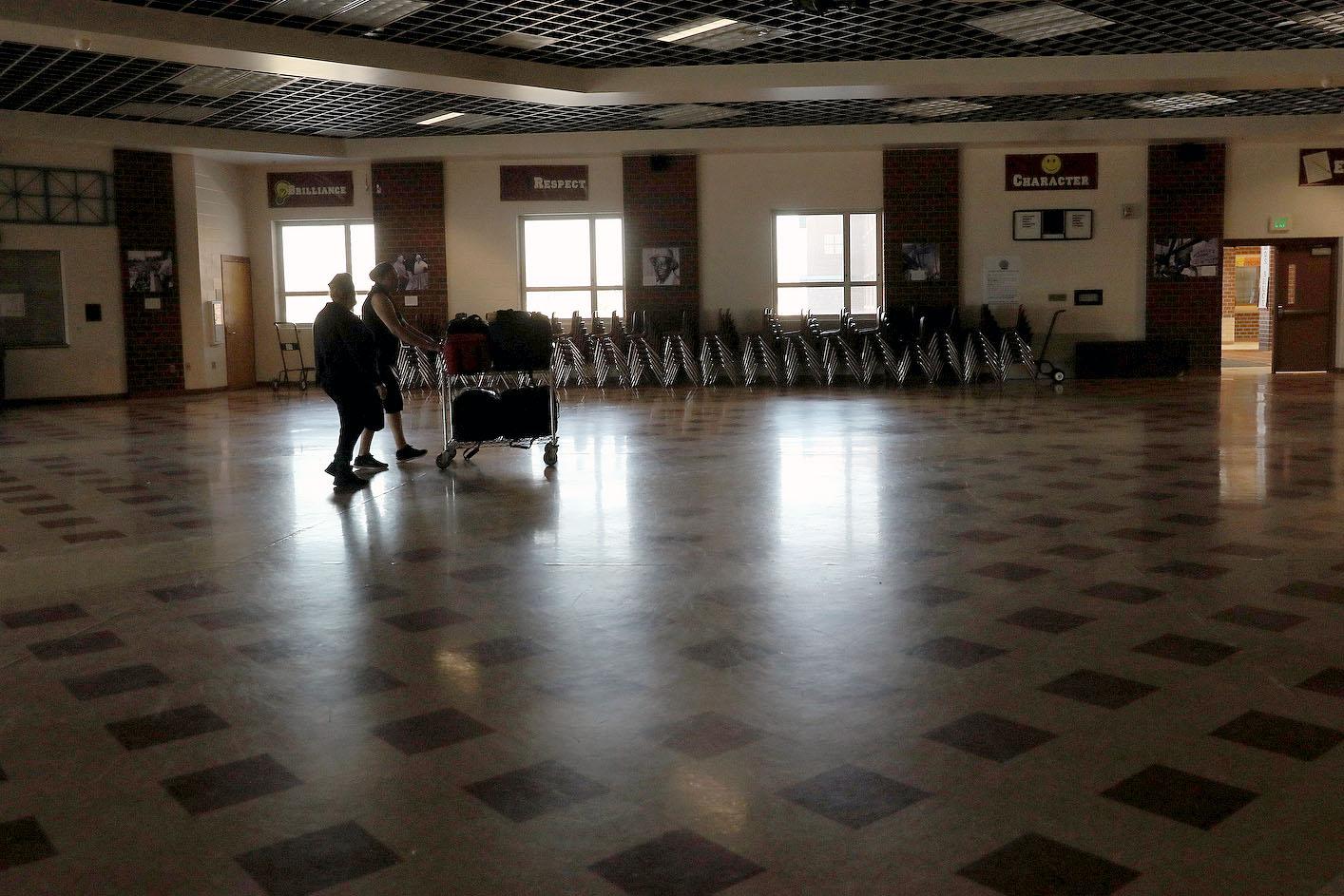
Comcast is extending its deadline for eligible families to apply for two months of free internet service, the company announced this week.
That’s welcome news to a Colorado coalition of faith, education, and labor groups that want to reduce barriers to access for students while remote learning continues due to COVID-19. The coalition, Coloradans for the Common Good, met with Comcast regional officials recently to discuss how to do so.
“There are still thousands of students who cannot reach their teachers and counselors,” said Tiffany Choi, president of the Denver Classroom Teachers Association, a member of the coalition.
Denver Public Schools Board Chair Carrie Olson said the district has spent more than $3.5 million to keep students connected, but 2,000 students are still without internet access.
Nationwide, Comcast also announced it will not disconnect a customer’s Xfinity Internet, Xfinity Mobile, or Xfinity Voice service if they cannot pay their bill, and the company will waive late fees if customers let them know that they can’t pay during this period.
The pandemic is laying bare the gap between families with internet access and those without, exacerbating educational inequities that have existed for decades. Not only do some families not speak English, some have never used a computer.
A recent Colorado State University study used census data to estimate that 54,000 Colorado students don’t have access to the internet. Around 40,000 of those children were Hispanic.
The coalition pushing for better access has applauded Comcast’s deadline extension for its low-cost Internet Essentials program. But the group remains concerned that many undocumented families are afraid to sign up because the application asks first for a social security number. If a family doesn’t have a social security number, Comcast accepts 28 other forms of ID. That includes a school ID and a utility bill.
The problem is that in order to see those other options, families first have to click a button that says they don’t have a social security number, Choi said.
“It’s our belief that if there was an application where you could choose from a list, a variety of identifications, it would be a lot less daunting for (the) undocumented who are afraid to click that they even have a social security number for whatever reason.”
Comcast is continuing to explore other ways to expand access. The company has connected more than 300,000 Coloradans to Internet Essentials over the past nine years.
Martha Teklehaimanot, a second grade teacher with DPS, has three students from families that don’t have internet access. They were “spooked” by the request for the social security number on the application, she said. So in the meantime, Teklehaimanot is trying to teach those students through phone calls and texting.
The lack of internet access goes beyond academics, DPS school social worker Emilio Ramos said.
“They are missing the only form of counseling they may have,” he said. “Schools are sanctuaries for these students, the only safe constant variable in their lives.”
Ramos said he lets his families know that Comcast has told the public it doesn’t share customers’ information with any other entity.
“But these families, with the overall political climate in the United States, are just still hesitant when there’s anything involving social security [numbers],” he said. “They’re just scared to do it.”
The coalition has also called on other internet service providers, like CenturyLink, Spectrum Internet, T-Mobile and Cricket Wireless, to find their own solutions for low-income families.
The stakes are even higher if remote learning continues into the fall. And teachers have said they’re worried about even more learning loss.
Over the summer, the average student loses two to three months of what they learned in the previous academic year, said Joyce Brooks, director of education for Colorado NAACP. The achievement loss can be even worse for students who are already behind in reading and math or those who are English-language learners, she said.
“Many believe the loss of learning is severely increased because of the lack of internet accessibility, the impact of the trauma of food insecurity, social isolation, housing loss, economic insecurity and the lack of professional coaching,” Brooks said. “This crisis is a call to action for all of us.”
Other non-English speaking communities have seen some success with getting connected thanks to help from others.
The Spring Institute, which serves refugee and immigrant families in northeast Denver and Aurora, has spent several weeks assisting refugee families with technical help and applications for internet access. “The clock is ticking week by week that families have not been connected to teachers,” said Terry Lieber.
But now, only a handful of the refugee families served by the Institute are not connected, she said.









